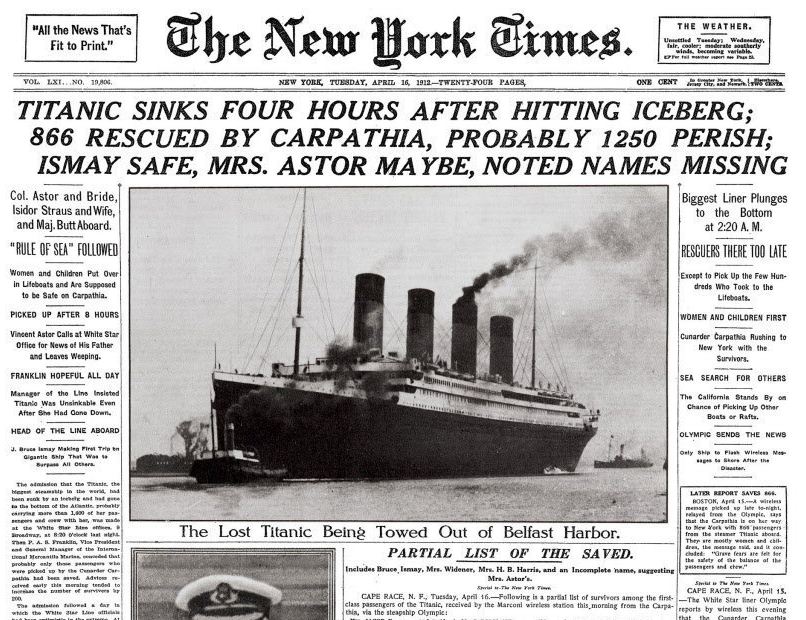The two previous posts are based on New York Times articles, a new one and one that was published more than a century ago. If you read this blog, you obviously know I love and appreciate the Times, despite its sometimes egregious missteps. I haven’t read it in print form in at least five years, but it’s still very important to me because it has a global reach that other publications lack. But I keep returning to the same question: How, exactly, does the company survive, let alone thrive, in the future?
I don’t understand how the economics can work. Traditionally, the paper made money to support a gigantic news organization by charging for individual copies, subscriptions, and by print advertisements. While the newsroom has been pared down, you can’t turn out something like the Times if you keep cutting. It stops being the Times, the same way that the Washington Post is now something other. If you subtract printing and delivery costs, would the same number of people be willing to pay for the product online as they did on paper? I would guess not. And you would actually need more online subscribers than traditional ones because unlike the heyday of print, it’s incredibly hard to monetize web users from an ad perspective. It’s been estimated that Facebook makes about 2 cents per member. And the Times isn’t going to have a billion “members.”
I guess one solution would be if Michael Bloomberg, when through with his illicit third term as NYC mayor, purchased the company and merged it with his business-journalism concern. He has the financial wherewithal and a profitable model. Failing that, I can’t come up with a good answer. The end of the Times wouldn’t mean the end of journalism any more than Broadway disappearing would mean the end of theater. The need to analyze is a deeply ingrained human need. But it would signify the finale of something vital.
The Times’ most famous obituary was published in the Atlantic in 2009. It was written by Michael Hirschorn, who suggested the company might die out that year. Thankfully, that didn’t happen. But was he wrong or just premature?•
Tags: Michael Hirschorn

